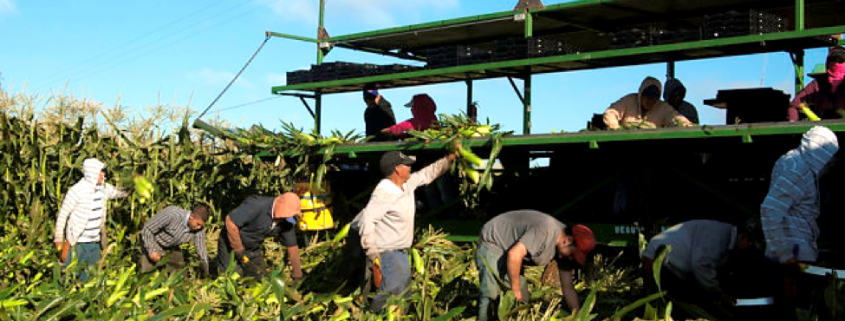In recognition of National Farmworker Awareness Week and in honor of the birthday of the great farmworker and civil rights advocate, the late Cesar Chavez, the Association of Farmworker Opportunity Programs is reposting a New American Media commentary by Elva Yañez. Her very personal remembrance of Chavez and the everlasting impact his work on laborers everywhere is well worth the read. To the Chavez family and all those who struggle to carry on his mission of justice, AFOP says, “Happy Birthday,” and thank you for all you do for farmworkers.
Daniel Sheehan
Executive Director
Association of Farmworker Opportunity Programs
—
A Personal Reflection: Honoring the Legacy of Cesar Chavez
New America Media, Commentary
Elva Yañez
March 25, 2016
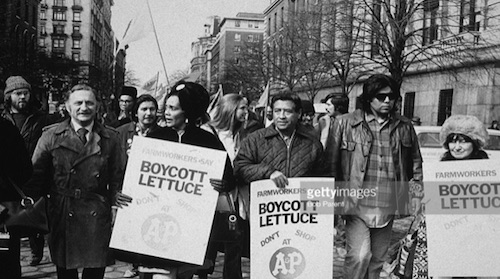
I was fortunate to be a child of the civil rights era. I learned from and was shaped by the world around me. When I was five years old, my sisters, mother and I walked to the Golden Gate Theater on Whittier Blvd in East Los Angeles for a Saturday matinee. The theater was far but our steps were light; I was especially excited because the Golden Gate was a beautiful and elaborate movie palace from the 1920’s with a second floor balcony. Just as we reached the theater, my mother stopped near the ticket booth and told us we had to go home. There was a picket line of striking workers in front of the theater that she refused to cross. My disappointment was overwhelming as we climbed on the bus to head home but I learned a deep and long-lasting lesson from that experience—always honor a picket line.
I think about that incident and its lessons a lot as we approach the holiday honoring the legacy of Cesar Chavez.
My mother Angelina was the first of her family born in the U.S. My family, like many, had come to Los Angeles during the tumultuous Mexican revolution. She became a garment worker as a teenager during the Great Depression and witnessed a good deal of labor unrest. Later on, she became a great admirer of Cesar Chavez. Angelina respected him for his humility, his courage in acting on his moral convictions, and for embodying the values of justice, equality, and fairness. Co-founder of the United Farm Workers (UFW) union with Dolores Huerta, Cesar organized Mexican and Filipino farmworkers who labored under brutal conditions. Their struggles for fair contracts with growers won workplace protections, higher wages, and collective bargaining rights in a sector that much of organized labor thought was unwinnable. Chavez’ leadership helped transform the social justice landscape in the U.S. and around the world.
Cesar insisted that social justice transcended individual campaigns about labor law and fights over union contracts. He believed in the importance of empowering workers to fight for and claim their rights. The movement’s triumphs – led by Chavez and so many that followed in his footsteps – conveyed a powerful message that David could actually defeat Goliath. Workers with virtually no support and even less political power could defeat some of the nation’s most powerful industries by building strong grassroots movements, inspiring leadership among those most impacted by injustice, and waging strategic campaigns.
Like many children, I was heavily influenced by my mother, and her love and appreciation for Cesar became deeply ingrained in me. One of my first volunteer experiences was for the UFW union as a high school student. After school I rode my bike to the union’s headquarters, also on Whittier Blvd. in East L.A., where I typed, filed, and listened to the stories of Joe Serda, who traveled the country as an organizer for the grape boycott. In college, I continued to volunteer for UFW fundraising events and leafleted in front of stores that sold boycotted products.
These experiences shaped my career working with groups waging social justice campaigns, including community-driven policy initiatives. To this day, I still regularly consult a pocket-sized booklet called “Axioms for Organizers,” which was compiled by Cesar’s mentor, Fred Ross, Sr. “Axioms” is a collection of organizing wisdom— distilled to its essence— that builds upon generations of experience. It has served as both a reference point and a touchstone for my work on tobacco and alcohol policy, land use, urban park issues, and health equity. Many organizations, such as Prevention Institute, embody Chavez’s work for social change. By looking at the root causes across systems to address injustices, and working to change local conditions, we know that communities can become empowered to ensure safe and healthy lives for their children and families.
The story of Cesar’s influence on my life is not a unique one. His legacy as one of the greatest “activist incubators” of our times is well deserved, as he helped transform so many of the young activists that worked with and for him into veteran organizers and longtime strategic visionaries fighting for equality and justice. As a woman, Dolores Huerta has also been a source of inspiration for me; now in her mid-80s she is still fighting racism, discrimination, and other injustices. Early in her career, she left teaching, unable to tolerate seeing the hungry children of migrant workers— and dedicated her life to advocating for the rights of women, immigrants, and people of color.
The lessons from Cesar’s life and the farm worker movement translated for me into a career focused on improving the community conditions that influence health and wellbeing. As Director of Health Equity at Prevention Institute, I am able to act upon shared values of health equity and social justice while upholding a commitment to authentic engagement, rigorous policy development, and public health approaches.
This March 31st, we will proudly celebrate the legacy of Cesar on the holiday named for him, as I do every year. While we honor and celebrate his accomplishments and influence, we will also reflect on the work that remains. Ongoing exposure to racism, discrimination, and lack of opportunity continue to exert a toll on the quality of life of millions of Americans. The fight for social justice and equity rages on: we see it in the streets of Baltimore, Ferguson, and Flint; among California farm workers still exposed to pesticides and working in dangerous conditions; and in present day justice movements— including Black Lives Matter, Latino “Dreamers”, Muslim immigrants, and LGBT activists— that demand equal treatment and opportunity under the law.
Honoring Cesar’s legacy links us to both historic and contemporary struggles for justice and democracy, and emphasizes the fundamental importance of grassroots organizing in waging effective movements for change. Cesar Chavez Day reminds us of the importance of having humility, respect, and courage as we work to eliminate inequities and expand fairness and justice in our communities. ¡Si se puede!
Elva Yañez is Director of Prevention Institute.


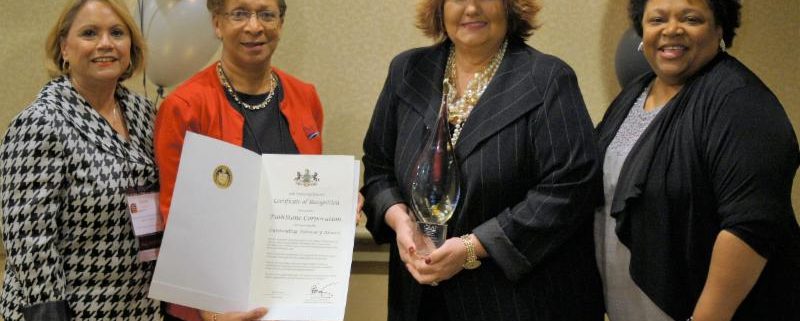




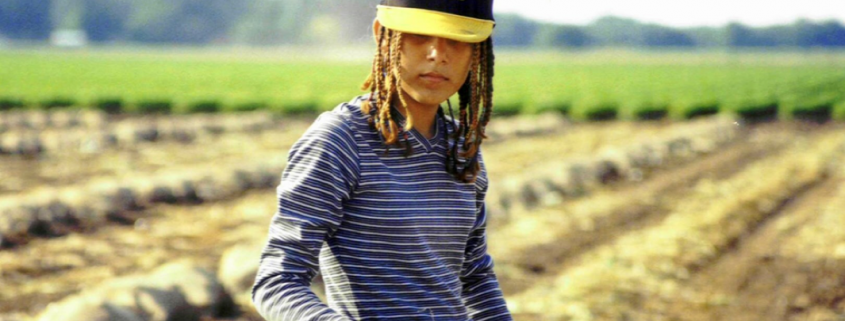

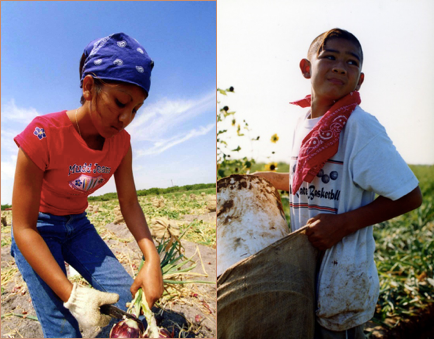
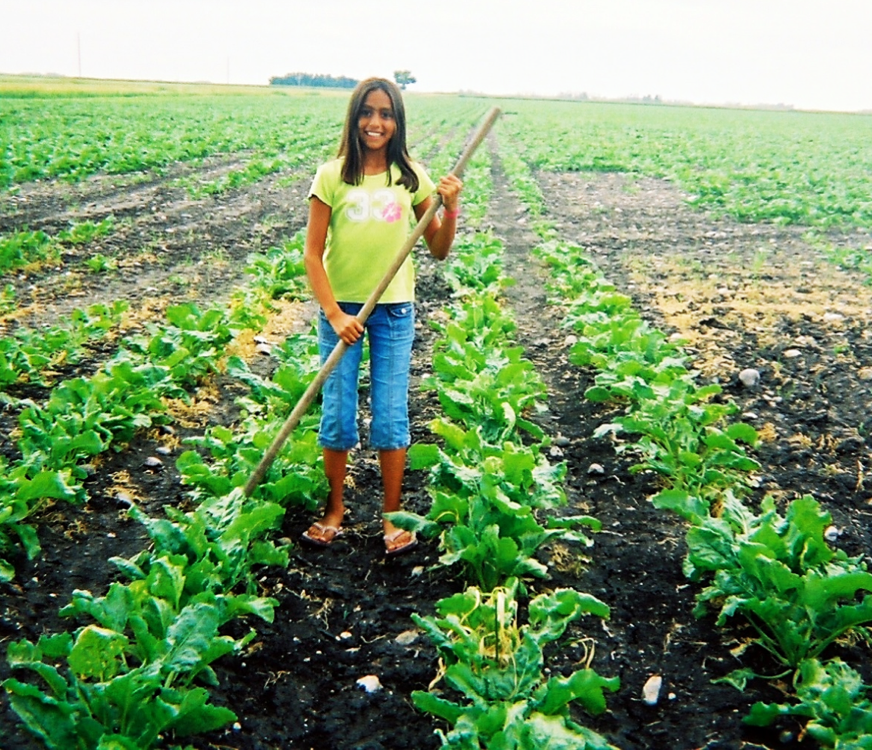


 Many farmworkers cherish the role they play in bringing fresh food to tables in homes across the country. It’s not surprising that many of the farmworkers who qualify for
Many farmworkers cherish the role they play in bringing fresh food to tables in homes across the country. It’s not surprising that many of the farmworkers who qualify for 